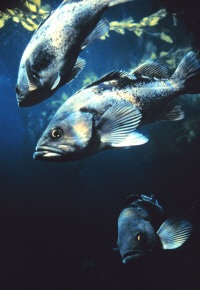|
|
|
|
|
THE OCEAN EDUCATION PROJECT
To Inform And Inspire
 To properly evaluate the outcomes and effectiveness of the OEP, an ongoing evaluation of the outreach programs and media broadcasts will be carried out by a professional evaluation company. Representative members of community groups, and students and educators will be pre and post tested to measure the efficacy of the concept communication. Selected representative participants will be interviewed at events, exhibits and screenings to assess the impacts of the OEP's efforts. Web site questionares and Discussion Groups forums will compile suggestions and comments. To properly evaluate the outcomes and effectiveness of the OEP, an ongoing evaluation of the outreach programs and media broadcasts will be carried out by a professional evaluation company. Representative members of community groups, and students and educators will be pre and post tested to measure the efficacy of the concept communication. Selected representative participants will be interviewed at events, exhibits and screenings to assess the impacts of the OEP's efforts. Web site questionares and Discussion Groups forums will compile suggestions and comments.
In addition, the OEP project administrator and participants plan to use both quantitative and qualitative measures to evaluate the effectiveness of the materials produced and distributed. Ongoing feedback will be monitored to follow which schools and school districts are using the program, and how effective it is. The OEP will carefully record use by schools, aquaria, zoos, NGOs, government organizations, and industry stakeholders and use this information to fine-tune the ongoing outreach methodology.
To monitor that teachers are actually using the teaching materials, pop-up feedback features will be built into the CD-ROM, downloadable PDF files or DVD that will prompt educators to register their use of the material at startup, and to periodically download updates. When they register or update the materials, their usage will be confirmed and provide real-time quantitative measurements of how many educators are using the program. And "suggestions box" features will prompt users to provide direct feedback on how to improve later editions of the materials program.
Qualitative evaluation measures will also include solicited visitor comments at aquaria, zoos, museums and other venues where media materials are screened or exhibited. And the OEP web site will encourage email feedback from visitors through online questionnaires. Web site links with OEP and it Outreach Collaborators will also drive traffic and increase synergies. Finally, the OEP will monitor any materials usage and screenings by policymakers and NGOs, as well as the reactions of the seafood industry stakeholders, for quality feedback that might improve the overall project's effectiveness.
PROJECTED TIME LINE
Preliminary development work on The Ocean Education Project began in the summer of 2004 and will continue until adequate funding is received, which is anticipated by yearend 2007. The project will complete the creation of all media and media-based teaching tools by the fourth quarter of 2006. Distribution of materials and outreach activities will continue for approximately three years, through 2009.
PROJECTED BUDGET
The total budget for The Ocean Education Project has not yet been determined. No donor or investor shall have editorial control over any aspect of the programming content.
FISCAL SPONSORSHIP
The fiscal sponsor of The Ocean Education Project is Environmental Media Fund, Inc. (EMF), a non-profit, 501(c)(3) California corporation. The Environmental Media Fund's Board of Directors has determined that sponsorship of the Ocean Education Project is consistent with furthering its charitable purposes. EMF will act as the projects fiscal sponsor and financial administrator. EMF will create and coordinate the submission of all grant proposals to donors, and communications with donors and sponsors, receive the funds into restricted accounts, and regrant funds to the OEP Outreach Collaborators and other participants as required.
|
|